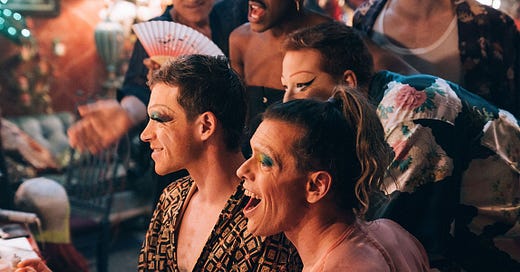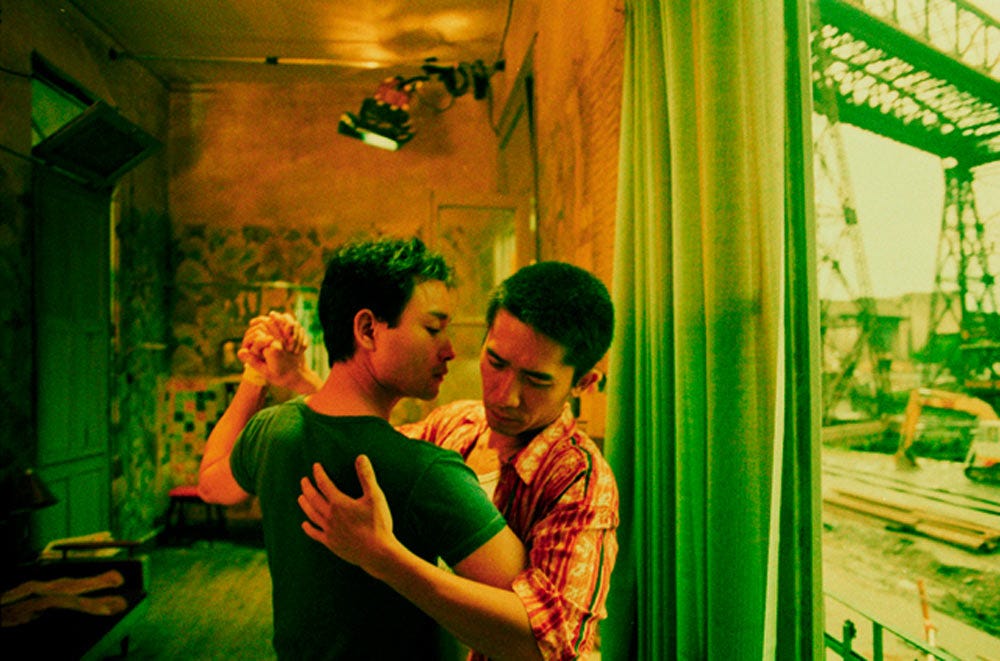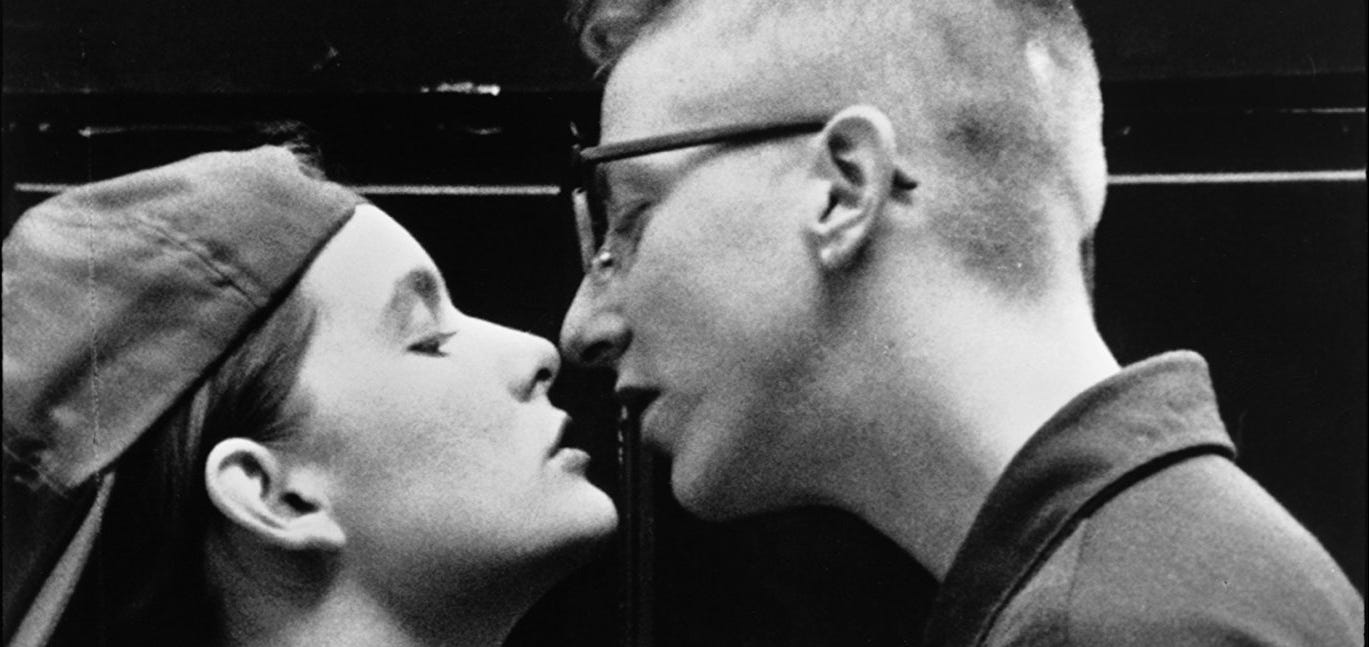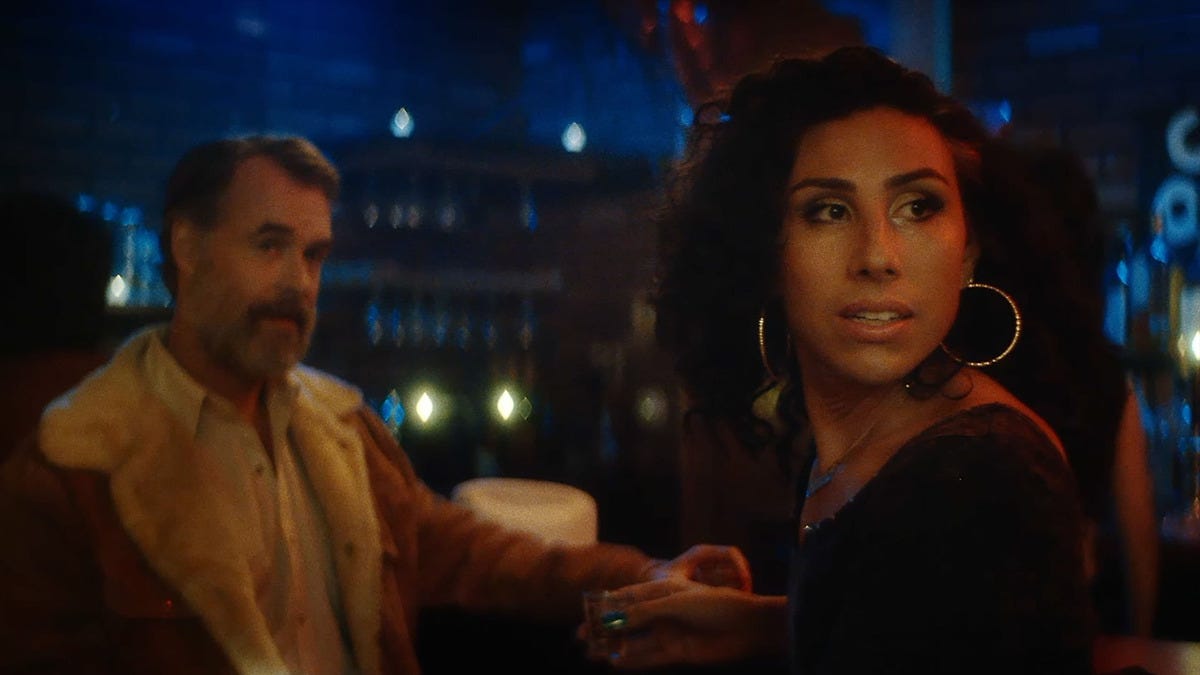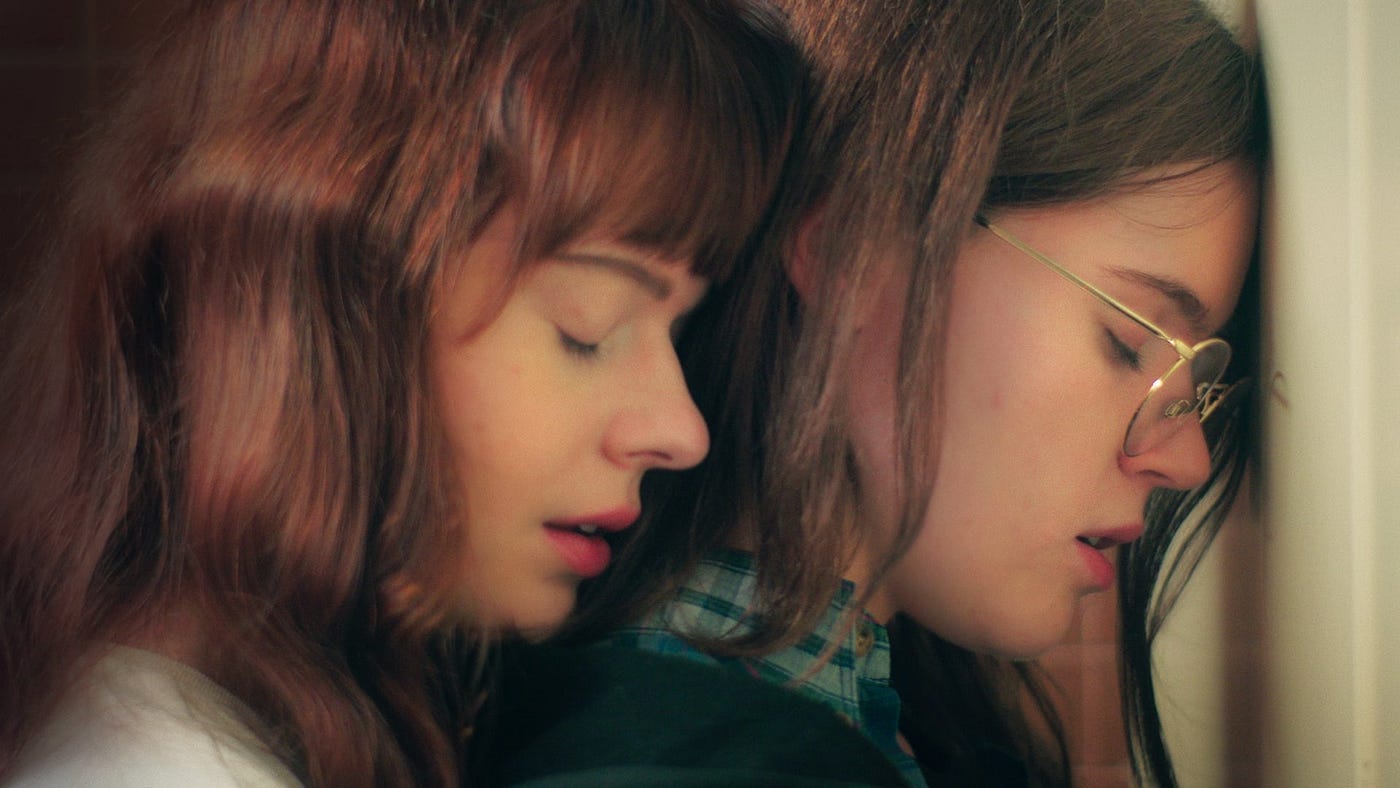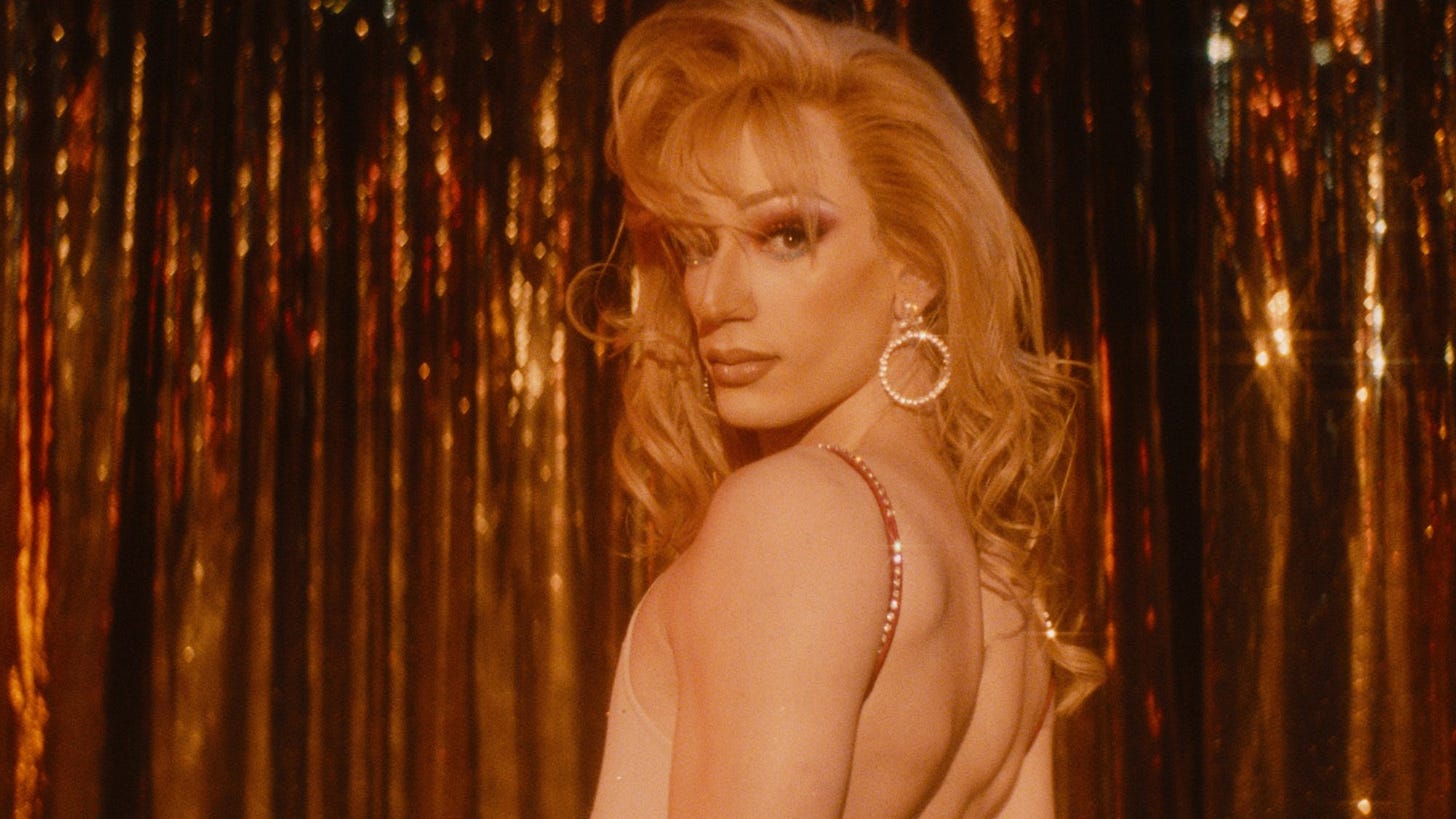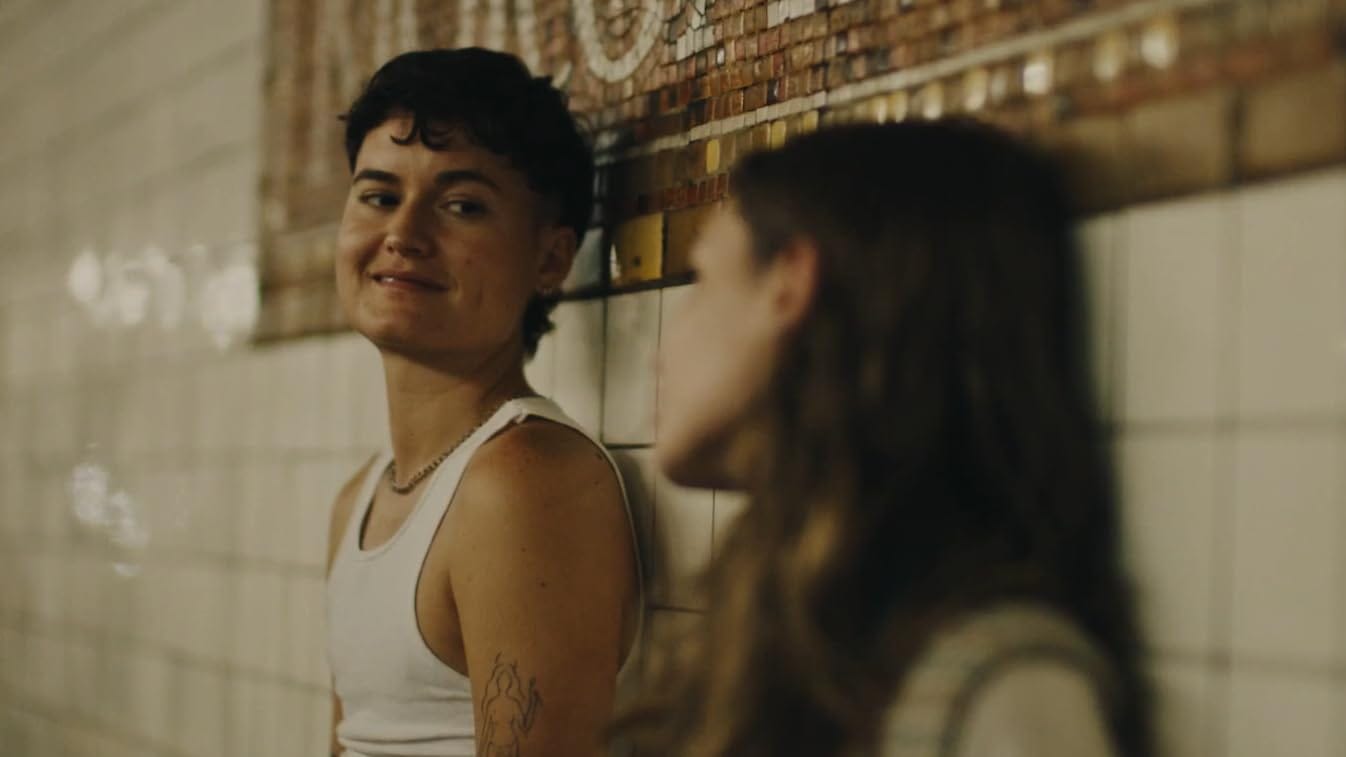Seven Queer Films That are Worth Watching
It’s pride month and with that there are always film recommendations coming out of every Film & TV publication telling their audience what LGBTQIA+ movies that everyone should watch. It’s usually the essentials, But I’m a Cheerleader, Bound, To Wong Foo, Moonlight, and Love, Simon. There’s no shortage of queer stories on screen, and while not every film will speak to everyone, the beauty lies in finding yours. The one that feels like it sees you, even in the smallest way. If you’re queer and one movie resonates deeply with your experience, that connection alone is powerful.
When you see yourself reflected on screen, especially in ways that feel honest and nuanced, it can be life-changing. It reminds you that your experiences. But it’s not just about seeing yourself, it’s also about expanding the ways queerness is portrayed. We need messy characters, joyful characters, angry, soft, complicated, ordinary ones. We need queer stories that are about friendship, discovery, and the beauty and sadness that comes with being alive.
Here are some films I watched recently that encompass all of that and more.
The Watermelon Woman
(directed by Cheryl Dunye, available on Criterion Channel)
The Watermelon Woman follows a young Black lesbian filmmaker (played by Cheryl Dunye) as she investigates the life and legacy of a 1930s Black actress known only as "The Watermelon Woman," who was typecast in stereotypical "mammy" roles.
The Watermelon Woman is one of the greatest queer films I have ever had the pleasure of watching. It’s a groundbreaking exploration of queerness, history, and identity through the lens of a young Black lesbian filmmaker. highlighting how queer stories of POCs have been systematically erased from film history. They are never highlighted or talked about as much, especially when talking about important queer cinema. Through Dunye’s search for the mysterious “Watermelon Woman,” the film poses urgent questions about who gets remembered, who tells the stories, and how queer people (especially queer POCs) can trace a lineage with the left behind fragments fragments.
Happy Together
(directed by Wong Kar-wai, available on HBO MAX and Criterion)
Happy Together follows a gay couple from Hong Kong who travel to Argentina hoping to rekindle their relationship and start fresh. Instead, the distance and disconnection between them only deepen. Yes, the title is pretty misleading. No one is happy, not in the slightest but god, does the pain feel so good (no it doesn’t). Through the turbulent relationship of two men far from home, the film captures the messiness of intimacy and emotional distance.
Happy Together is about being stuck with someone you no longer want, and still loving them despite the damage they cause. It’s about the push and pull between the desire for something new and the inability to let go of the past. The film captures the quiet heartbreak of loving someone who feels like home, even when that home is falling apart.
Go Fish
(directed by Rose Troche, available on Pluto TV)
If it wasn’t for the documentary Chasing Chasing Amy (2023), Go Fish would have probably remained a blind spot for me. It was absolutely everything to me. Max, a stylish and self-assured young lesbian navigating the ups and downs of dating. When her friend sets her up with Ely, an older, more reserved woman who seems completely different from Max at first. The connection isn’t instant. They don’t have much in common on the surface, but as they spend time together, attraction and affection begin to grow in unexpected ways. The film is a slice-of-life look at queer relationships and allowing queer people to exist with all of the nuances of existing.
Go Fish offers a surprisingly rich tapestry of perspectives of queer life, particularly queer women. It was a film that was ahead of its time when discussing the landscape of queer media. There is a moment between Max and Ely where they are discussing a film they watched that was directed by a gay male director. After the screening, they engage in a thoughtful debate: does he have a responsibility to show queer joy, or is depicting queer pain and self-hatred just as valid? For decades, queer stories were dominated by narratives of tragedy, shame, and loss. Often times it seems as if it’s the only way these stories are deemed "serious" or "worthy" by mainstream culture. While these depictions reflected real struggles, they also reinforced the idea that queerness was inherently tragic.
On the other side of that coin, tragedy is a universal human experience and the history of queer culture is one of strength and resilience, there is a lot of pain endured. What Go Fish ultimately suggests and what resonates so strongly in queer media today is that both are necessary. Queerness isn’t a monolith. It’s multifaceted, messy, joyful, painful, awkward, mundane, and extraordinary. Representing that full spectrum is essential. More and more there's been a growing push for joyful, celebratory, and nuanced portrayals of queer life and hopefully we continue to see this upward trend.
Ponyboi
(directed by Esteban Arango, COMING SOON)
If you have the chance to see Ponyboi when it hits theaters June 27, please do so. I had the chance to watch the digital screener during 2024’s Sundance Film Festival. Ponyboi is a work of art. STRESSFUL—like Uncut Gems levels of anxiety from start all the way to the glorious finish line. The cinematography? Absolutely stunning. Ponyboi takes familiar elements of the gangster/crime genre but reframes them through a queer, intersex lens, offering something that feels fresh. While the plot itself isn’t revolutionary for a crime film, what makes it stand out is the way it intertwines queerness and identity. It captures the feeling of being trapped in a version of yourself that doesn’t quite fit, and the chaos of trying to escape it.
Indya Moore is magnetic on screen, and River Gallo delivers a raw and vulnerable performance while fully commanding the story. There’s one quiet, emotionally charged scene between Indya Moore’s character and River Gallo’s that has stayed with me. It felt heavy, honest, and important—like a conversation we rarely get to see onscreen in queer cinema.
NO SPOILERS but — “You think you’re a gangster, but you’re some white boy from Jersey” is truly the most iconic line in cinema history, period.
You Can Live Forever
(directed by Sarah Watts and Mark Slutsky, Available on VOD)
You Can Live Forever is a queer teenage love story that shows how one person can change your life. Seventeen-year-old Jamie (Anwen O’Driscoll) is sent to spend time with her aunt and uncle after her mother suffers a mental breakdown. Her aunt Beth (Laine Balaban) and Uncle Jan François (Antoine Yared) are both Jehovah’s Witnesses. Although Jamie is not in the truth herself, her aunt and uncle still welcome her with open arms and care for her. While under their roof, she is asked to attend a weekly meeting at the Kingdom Hall. Jamie is not too thrilled, but to keep the peace between her and her temporary guardians, she goes. It is there she meets the eyes of Marike (June Laporte). As Marike and Jamie’s friendship grows stronger, there is a passive pressure to have Jamie participate in more activities such as bible studies and “field service”. The bond between Marike and Jamie grows stronger and blossoms into a tender slow-burn romance.
You Can Live Forever beautifully captures the intensity of all-consuming teenage yearning. It’s the kind that feels impossible to replicate in adulthood. Set against the backdrop of a devout religious community, the film explores the collision of queerness and faith with a quiet, aching honesty. It explores the cost of faith, not just in a higher power, but in each other and what it means to lose or hold onto that belief. And the ending is devastating in its quiet finality. It has lingered with me ever since.
Solo
(directed by Sophie Dupuis, available on VOD)
Set against the vibrant backdrop of Montreal’s drag scene, SOLO, directed by Sophie Dupuis, explores the longing to be loved even when that love comes wrapped in something cold and consuming. Simon (Théodore Pellerin) is a rising star in the local drag community, adored at his home bar where he dazzles as Glory Gore, performing joyful disco numbers with the backing of his drag family and his devoted sister and costume designer, Maude (Alice Moreault). When a mysterious new performer, Oliver (Félix Maritaud), arrives on the scene, Simon is immediately drawn to him. After a night together at the club, what begins as intrigue quickly spirals into infatuation.
SOLO is, at its core, a story about relationships. From the ones that lift us up and the ones that slowly drain us. It delves into the toxic dynamics we sometimes endure in the desperate pursuit of love, even when that love is suffocating. With unflinching honesty, SOLO offers a reflection that many will find painfully relatable. At the same time, it celebrates the fierce empowerment of the drag community and the liberating journey of finding strength, love, and freedom within ourselves. Drag culture is at the heart of SOLO. Dupuis has a deep admiration for the unsung heroes of the queer community and it reflects in her film. The attention to detail does not go unnoticed, there is an authenticity that seeps through the screen.
My full review can be found on Film Obsessive!
Mutt
(directed by Vuk Lungulov-Klotz, available on Netflix)
Over the span of one chaotic day in New York City, Feña unexpectedly crosses paths with three people from his past: his estranged father visiting from abroad, his straight ex-boyfriend, and his 13-year-old half-sister. Since transitioning from female to male, Feña has lost contact with all of them. Now, he must confront the evolving complexities of these once-familiar relationships.
Mutt offers a raw, intimate look at the daily realities of a trans man, shedding light on experiences often ignored such as being misgendered, deadnamed, and scrutinized in deeply personal ways. Mutt depicts that constant battle to simply be seen for who you and how exhausting it can become doing day in and day out.
☕️✨Support my Caffeine habit! ☕️✨
Did you like what you just read? Well…what better way to support someone than buying that person coffee! https://ko-fi.com/chelseaalexn
Follow me on BlueSky, Instagram, Letterboxd, and subscribe to The Degrassi Substack here and follow on Instagram!

